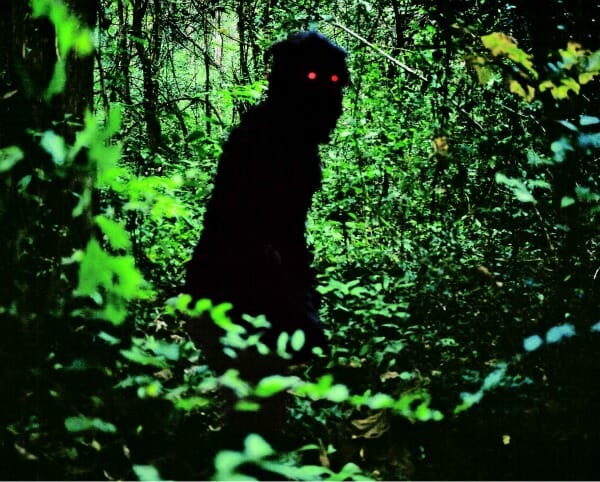
Director: Apichatpong Weerasethakul
Writer: Apichatpong Weerasethakul
Cinematographers: Yukontorn Mingmongkon and Sayombhu Mukdeeprom
Starring: Thanapat Saisaymar, Sakda Kaewbuadee, Matthieu Ly, Vien Pimdee,
Studio/Runtime: Strand Releasing/114 min.
When it comes to sheer impenetrability in film, there’s everyone else and then there’s Apichatpong Weerasethakul. Even avant-garde filmmakers like Stan Brakhage or Jonas Mekas at least seem to have a logic for what appears in their films, but Weerasethakul’s choices are hard to fathom, such that even when you’re largely aware of what he’s trying to do, things don’t get any easier. Anyone interested in watching Uncle Boonmee Who Can Recall His Past Lives should know going in that what they’re about to see makes David Lynch look like Chris Columbus, and whether or not that’s a good thing is very much in the eye of the beholder.
Uncle Boonmee’s plot is actually quite simple and understandable, if rather slight. Boonmee is a farmer about to pass away, and due to the proximity of his death he’s begun considering his place in the universe, including both his past lives and what’s to come after he’s gone. It’s the way Weerasethakul shows us this process that’s confusing, as he’s joined first by the ghost of his dead wife and soon afterwards by his lost (possibly deceased) son, who’s now transformed into a ghost monkey. The film’s title isn’t much of a guide either, since past lives play a surprisingly small role in the film, the only two we see being Boonmee as a water bison and as a princess having sex with a fish.
What, if any, significance all of these strange events have can be difficult to put together. In essence it’s a meditation on coming to terms with death, both our own and that of our loved ones, but not all of the film easily fits into this theme. Likewise, Uncle Boonmeenever sticks to one style, being at times a costume drama or a sort of horror movie and at other times an Antonioni-esque art flick or something else entirely. Oddly, though, like the appearance of ghosts in an otherwise realistic world, these different styles just kind of fit together, such that editing in several minutes of stills taken from making the rest of the movie doesn’t feel jarring, it’s just another part of the strange confluence of ideas that make up Uncle Boonmee.
A question it’s hard to avoid asking about the film is whether the emperor in fact has no clothes, is Uncle Boonmee working towards something or is it just nonsense? Maybe the answer is a little bit of both. A lot of events and elements that seem random or unnecessary during the film make more sense with some consideration, but it’s hard to think of a more difficult manner of communicating than through such a morass of piled-on oddity. But this essential strangeness gives a sense of wonder to the film, and is in some sense its reason for existence. There are parts of the picture that seem opaque for the sake of opaqueness, only there on-screen in order to be analyzed by film professors—Weerasethakul’s films are tinged with a Joycean need to have others give them significance. Still, though, Uncle Boonmee is undeniably groundbreaking, and while the film’s experiments miss nearly as often as they hit, they’re always exciting. It’s that rarity in any medium, a totally unique work of art, and that it’s a bit of a mess doesn’t detract much from how mesmerizing of an experience it can be.